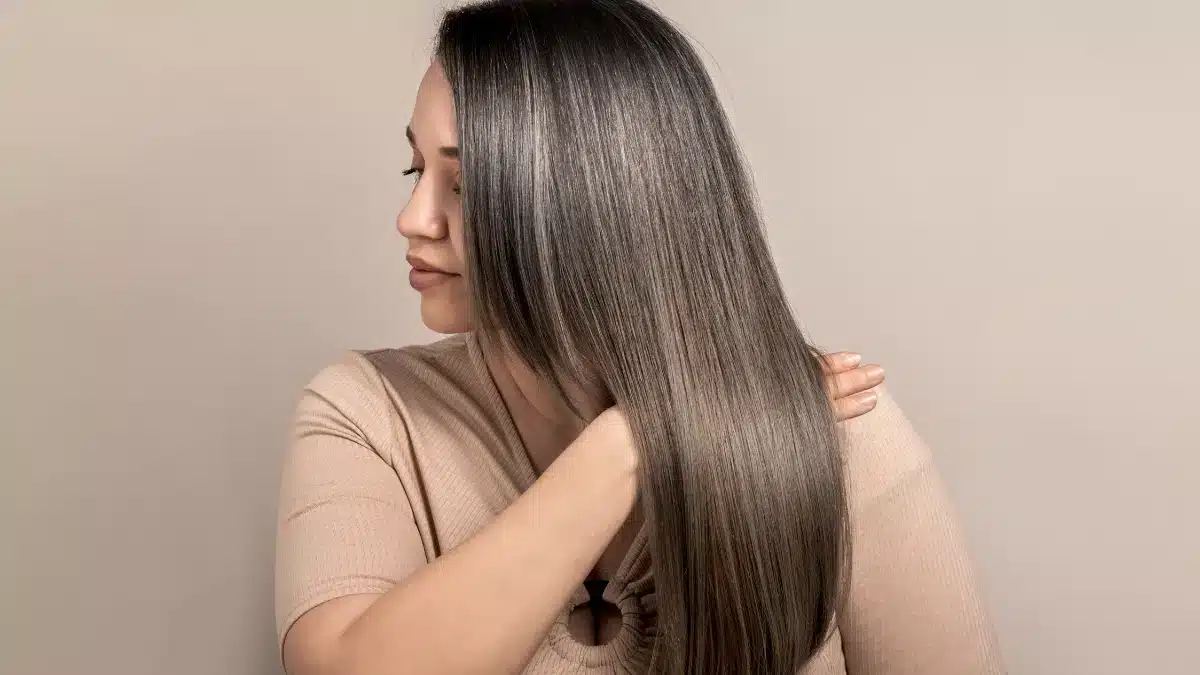Discover the Mystery: Why Does My Hair Stop Growing at a Certain Length?
Have you ever wondered why does my hair stop growing at a certain length ?
You might have been dissatisfied with its length.
Don’t worry; it is a common concern shared by individuals across the globe.
This article will inspect the reasons behind this phenomenon and debunk misconceptions.
Additionally, we will provide insights on optimizing hair health to achieve your desired hair length.
So, let’s get started and understand why my hair stops growing at a certain length.
Understanding the hair growth cycle
To understand why hair growth appears to stop at a certain length, it’s crucial to grasp the hair growth cycle.
Hair undergoes three phases: the growth phase, the transition phase, and the resting phase.
The growth phase, anagen, involves rapid cell division leading to longer strands.
However, the duration of this phase is genetically predetermined and varies among individuals.
Here are some conditions that might be responsible for putting your hair growth to a halt.
Genetic factors and hair length
Genetics plays a significant role in determining the maximum potential length of your hair.
Each hair follicle has a predetermined length limit influenced by inherited genes.
While some individuals have follicles capable of substantial growth, others have genetically predetermined shorter limits.
Understanding your genetic predisposition can help set realistic expectations regarding hair length.
Terminal length and individual variation

The terminal length refers to the maximum length hair can reach before naturally shedding or breaking apart.
The terminal length is influenced by genetics, age, and overall hair health.
Moreover, the rate of hair growth varies among individuals due to factors such as nutrients, hormones, and general well-being.
Due to individual differences, it is essential to remember that what one person considers lengthy may be regarded as short by another.
Breakage and damage
Although hair growth appears to stop, it may break off at the same rate it grows.
As a result, it might be possible that your hair length remains stationary.
Excessive heat styling, chemical treatments, improper brushing, and harsh environmental conditions weaken the hair shaft.
All these conditions can lead to breakage.
Adopting a gentle hair care routine and minimizing damaging practices can help preserve length and prevent unnecessary breakage.
Hair care practices for optimal growth
Consider incorporating these healthy practices into your hair care routine to promote healthy hair growth and enhance the potential length.
Nutritious diet

A balanced diet rich in vitamins, minerals, and protein is essential for healthy hair growth.
Try to add necessary nutrients, including leafy greens, nuts, fish, and eggs.
Regular trims
Contrary to popular belief, regular trims do not directly promote hair growth.
However, they eliminate split ends and prevent breakage, allowing the hair to retain length effectively.
Gentle handling
Treat your hair carefully, from gentle detangling to limiting heat styling.
Avoid tight hairstyles that exert excessive tension on the hair, which can lead to breakage.
Scalp care
Maintaining a healthy scalp is vital for optimal hair growth.
Regular scalp massages stimulate blood flow, and using scalp-friendly products helps maintain a balanced environment.
Conclusion
Understanding why hair growth appears to stop at a certain length is vital to managing your hair care expectations.
Although genetics greatly determine the maximum potential length, other factors like breakage, damage, and overall hair health also play a role.
You can optimize your hair’s growth potential by adopting a gentle hair care routine, nourishing your body, and promoting scalp health.
As a result, you can achieve your desired length.
Remember, healthy hair is beautiful hair.
Frequently Asked Questions
Why is my hair stuck at the same length?
Your hair growth could have stopped for various reasons, including genetic constraints, frequent breakage, and injury. To break through this barrier and achieve healthier, longer hair, it is necessary to gain insight into these factors and practice effective hair care procedures.
At what age does hair stop growing?
Hair growth is possible at any age, though it often slows with maturity. After the age of 30, hair growth slows significantly, while this is subject to variation based on factors like genetics and general health.
Is there a maximum length for hair?
No, the genes define the ideal length of a person’s hair and cannot be exceeded. This restriction is due to heredity, age, and general hair health. Some people have the potential to grow to impressive proportions, while others may be unable to exceed a shorter limit set by their genes.
Does hair grow after 25?
After the age of 25, hair growth may continue, although at a slower rate than in the early years. The rate at which hair grows is hampered by a variety of factors. If you want to regrow long and strong hair, you must take proper care of it and stick to a healthy lifestyle.
WowRx uses only high-quality sources while writing our articles. Please read our content information policy to know more about how we keep our content reliable and trustworthy.






